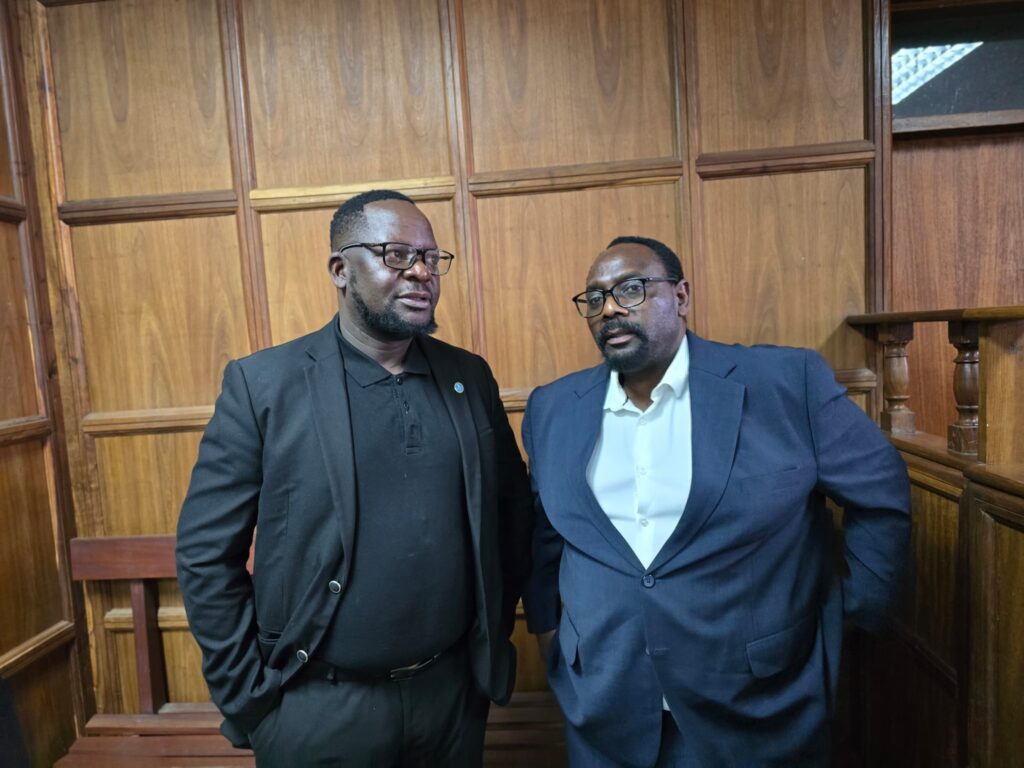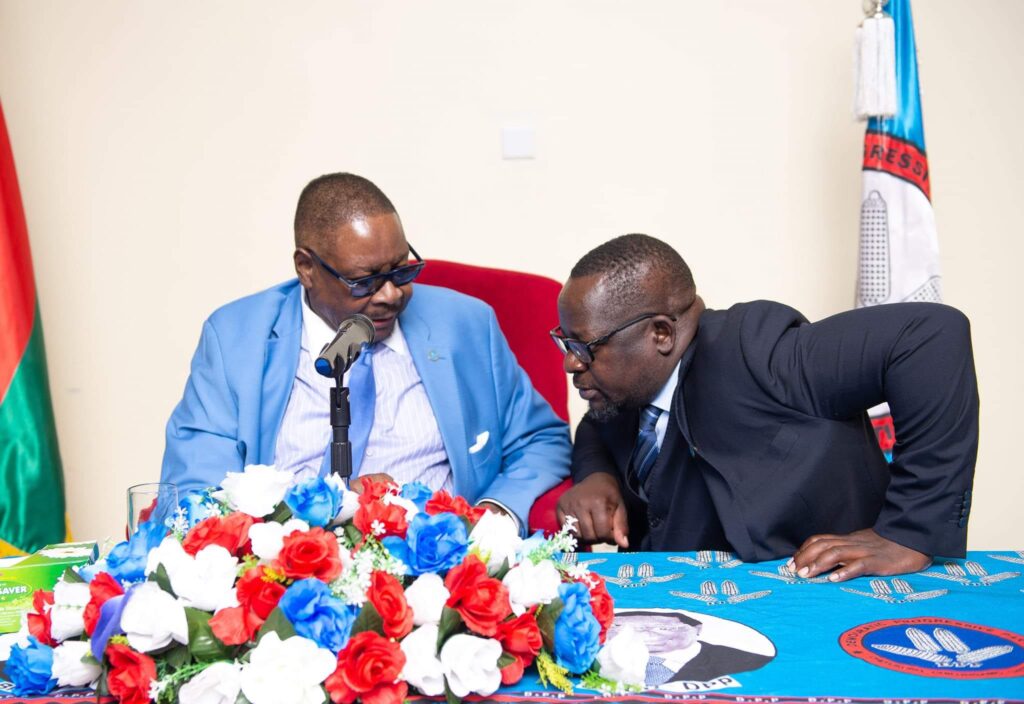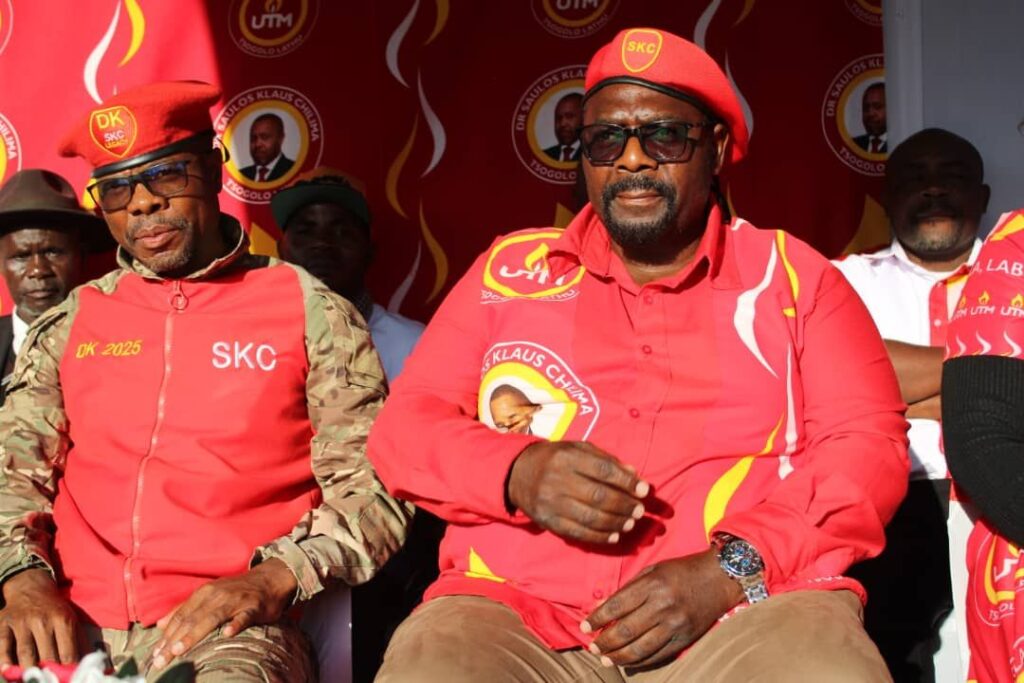As Malawi inches closer to the critical September general elections, events unfolding in the corridors of justice are offering citizens a glimpse into the moral and ethical fitness of those vying for power.
On Wednesday July 30, the Anti-Corruption Bureau (ACB) confirmed that it has arrested Shadric Namalomba, the spokesperson of the Democratic Progressive Party (DPP) and a close ally of former President Arthur Peter Mutharika and his mouth piece and Noel Masangwi, a high-ranking figure in the UTM and one of its founding patrons.
The charges? Misuse of public office, corruption, and conspiracy to illegally export banned mukula hardwood logs, a case dating back to 2015 when Namalomba and Masangwi were in the corridors of power under the DPP.

These arrests are not just legal actions; they are political statements.
They shine a harsh spotlight on the type of leadership Malawians are being asked to entrust with public resources and national development.
While slogans and manifestos are being churned out daily by campaign teams, these arrests have done more than any rally speech to expose the stark moral divide between leaders who see public service as a privilege to serve, and those who treat it as a private enterprise.
Mukula, a highly valuable hardwood species, has long symbolized the underbelly of corruption in southern Africa, with illegal log exports linked to political elites across the region.
In Malawi, a 2008 ban on the Mukula export was put in place to protect the species. Yet, in 2015, while serving as Commissioner for Customs and Excise at the Malawi Revenue Authority (MRA), Namalomba allegedly facilitated the clearance and exportation of the banned product.
The timber was reportedly stored at a facility owned by Elvis Freight and Cargo Services Limited, a company tied to Noel Masangwi.
The ACB’s investigation, prompted by a formal complaint in March 2025, alleges that Namalomba used his position to benefit Masangwi and bypassed customs protocols to enable the illegal export of timber.
These actions, if proven, represent not just individual criminality but an organized web of corruption enabled by public office. It’s a tale of betrayal of public trust and reckless disregard for environmental laws and national interests.


The arrests deserve a public conversation about the integrity of the major opposition blocs, the DPP and UTM, whose top representatives now stand accused of looting the very resources they once promised to protect.
While DPP leader Arthur Peter Mutharika continues to campaign, albeit visibly frail and disengaged, his closest confidant is now facing charges for acts committed during the DPP’s last tenure in power.
For the UTM, which marketed itself in 2018 as the clean, youth-led alternative to the status quo, the arrest of Masangwi is especially damning.
UTM has always tried to draw a line between itself and the corruption that defined the DPP regime. But Masangwi’s case collapses that narrative. It’s now evident that political recycling has rendered the distinction between DPP and UTM meaningless when it comes to ethical governance.
In the court of public opinion, these arrests come at a pivotal moment.
They offer the electorate a rare chance to interrogate more than just policy proposals, they allow Malawians to scrutinize the moral DNA of their would-be rulers.
If individuals like Namalomba and Masangwi are trusted again with the levers of power, what assurance is there that the looting, abuse, and criminality won’t continue, only this time with even greater impunity?
The ACB and other institutions of accountability have already faced political pressure, sabotage, and budgetary limitations. Re-electing parties associated with such figures risks suffocating these very watchdogs.
Malawians must therefore see these arrests as more than just legal actions, but a flashing red warning light on the political dashboard of our democracy.
It’s easy to treat corruption as a distant, elite problem. But the consequences are felt daily: in underfunded hospitals, empty school cupboards, delayed road projects, and youth unemployment.
When Mukula is exported illegally, it’s not just trees that are lost, it’s revenue that could have supported local councils, empowered community forestry initiatives, or provided scholarships for rural youth.
Namalomba and Masangwi’s alleged actions represent a direct theft from Malawi’s future.
They embody the type of leadership that doesn’t plant trees but uproots them; that doesn’t build, but breaks; that doesn’t serve, but exploits.
That these individuals still hold political clout, and in Namalomba’s case, speak for a presidential candidate, is both frightening and telling.
The arrests are also a stress test for the credibility and independence of the ACB. Jacqueline Ngongonda’s initial reluctance to confirm the arrests speaks to the fraught environment in which these institutions operate. Powerful political figures do not go down quietly. Already, there are murmurs of political persecution, a familiar script used by those cornered by their own pasts.
However, for once, it seems the Bureau is determined to walk the talk.
The legal system has so far shown restraint and professionalism, granting bail while investigations continue. But the true measure of success will lie in securing convictions and in seeing whether more high-profile suspects will be investigated regardless of political affiliation.
The arreast vindicate the ruling Malawi Congress Party (MCP) further that their anti-corruption rhetoric is not just talk. President Dr. Lazarus McCarthy Chakwera has always been keen to “clear the rubble,” and the arrests offer his administration a clear win.
These elections are no longer just about economic policies or development agendas. They have morphed into a referendum on integrity. The question every Malawian must ask themselves is simple: Can we afford to entrust this country’s resources, forests, taxes, and future to individuals who have allegedly demonstrated the very worst of public service?
Every vote for a party that shelters corruption is a vote against clean water, against working hospitals, against education, and against justice. It’s a vote for a few millionaires to thrive while millions struggle. In this way, the arrest of Namalomba and Masangwi is more than a legal matter, it’s a mirror held up to Malawi, daring us to choose what kind of country we want to be.
As campaign trucks roar through villages and politicians hand out t-shirts and sugar, Malawians must look beyond the immediate spectacle and into the heart of the matter. Governance is about stewardship, and this week’s arrests are a painful reminder of what happens when power is abused.
The law will take its course, and both Namalomba and Masangwi are presumed innocent until proven guilty. But the moral question is clear: Do these men represent the values that Malawi needs right now? Do their parties have the courage to sever ties with corruption, or will they normalize it under the guise of political strategy?
September offers a chance to vote and to reform. The ballot box is the final court where the people deliver their verdict. And this time, the stakes are too high for sentiment or nostalgia. This is a fight for the soul of the nation. The arrests have cast the first stone. The rest is up to the voters.




